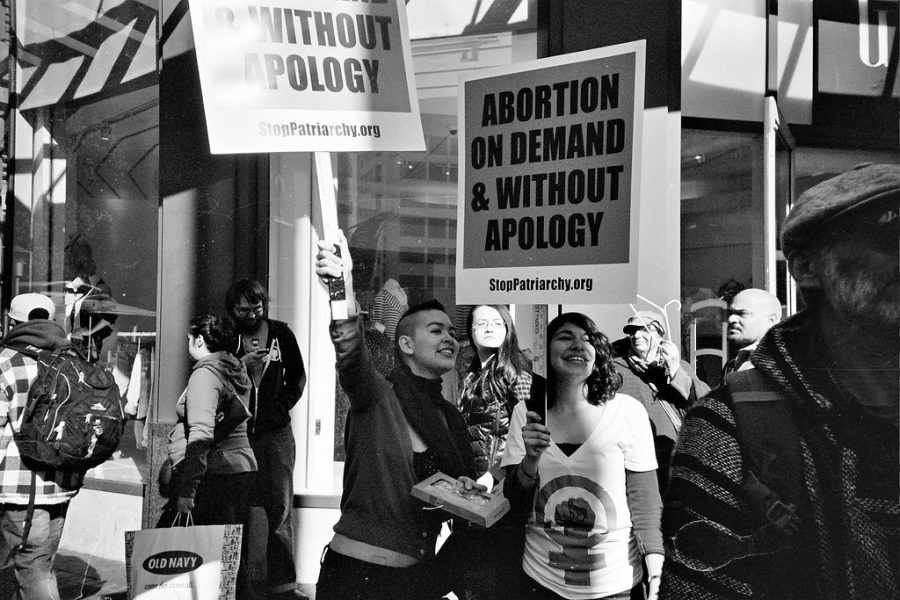The SB 8 pendulum: how reproductive rights in Texas suddenly got politicized
Roe v. Wade, established in 1973, was a landmark decision of the U.S. Supreme Court in which the Court ruled that the Constitution of the United States protects a pregnant woman’s liberty to choose to have an abortion without excessive government restriction.
Senate Bill 8 is an anti-abortion bill that leaves uncertainty in the state of reproductive rights in Texas. SB 8 was first passed on Aug. 31, but it was blocked on Oct. 6 by a federal judge for defying the constitutional rights established by Roe v. Wade. SB 8 is currently resumed by an administrative stay issued by the Fifth Circuit Court of Appeals. The enforcement of SB 8 is a terrifying turning point, but the most concerning aspect of this bill is the continual trend of politicizing human rights issues for political gain.
SB 8 is written as vaguely as possible to create loopholes so complex that lawsuits are virtually impossible. The law bans almost all abortions after six weeks, which is before most pregnancies are detected. It also forbids the state to enforce the law, allowing private citizens to do so. Private citizens are those who don’t hold an official position, which could range from the clinic performing the abortion or someone else who pays for it. Those caught could be liable for a charge of $10,000 in damages. On top of that, SB 8 outlaws abortions based on incest or rape. Instead of protecting Texans, the law is proof of Texas officials imposing their own personal beliefs onto matters that don’t concern them.
This victory for Gov. Abbott and the Republican Party leaves many Texans liable to SB 8’s tricky political schemes. In the past months, Abbott has signed into law a voter suppression bill, restricted transgender athletes, pushed back against COVID-19 and now passed the most restrictive anti-abortion bill.
A poll from Quinnipiac University shows Abbott’s approval rating is at a disapproval of 51%. Every decision made feels like a strategy rather than a genuine concern for Texans’ livelihood, especially with Abbott up for reelection in 2022.
What’s scarier is the permanent effects of this law that everyone will have to endure. In Section 717.212, SB 8 becomes strangely specific when discussing severability to avoid future legal challenges. According to Cornell’s Legal Information Institute, severability is used to “keep the remaining portions of the contract in force should a court declare one or more of its provisions unconstitutional [or] void.” In other words, if SB 8 is unconstitutional, Texas can still enforce some aspects of the law.
Many women are getting creative, working around the vagueness of SB 8 by traveling to Oklahoma for abortions. Organizations like, Need an Abortion, further assist Texans in providing the neccessary information and extra funds for those to get an abortion elsewhere or even donate. Still, this puts a strain on abortion clinics everywhere as the anti-abortion movement progresses. Until politics gets removed from issues concerning basic human rights, this is the future of lawmaking.

I'm Taheera Washington, and I'm one of the Newsletter Editors! I'm a senior majoring in Writing & Rhetoric with a concentration in Creative Writing...







